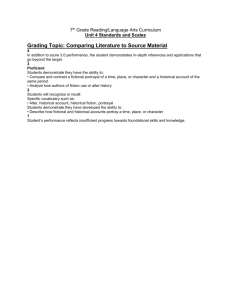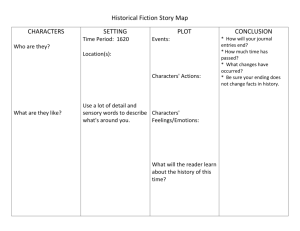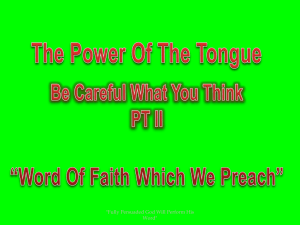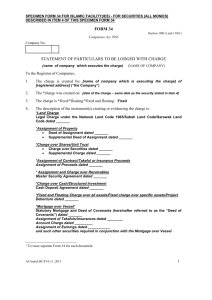Guidelines of Selection Criteria
advertisement
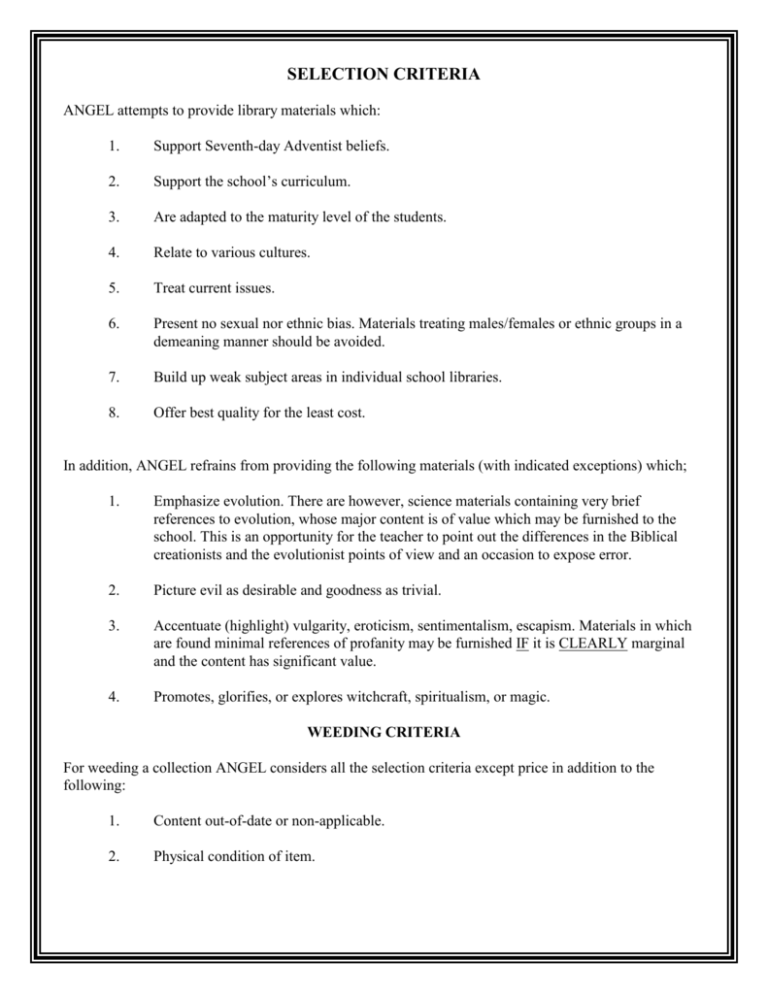
SELECTION CRITERIA ANGEL attempts to provide library materials which: 1. Support Seventh-day Adventist beliefs. 2. Support the school’s curriculum. 3. Are adapted to the maturity level of the students. 4. Relate to various cultures. 5. Treat current issues. 6. Present no sexual nor ethnic bias. Materials treating males/females or ethnic groups in a demeaning manner should be avoided. 7. Build up weak subject areas in individual school libraries. 8. Offer best quality for the least cost. In addition, ANGEL refrains from providing the following materials (with indicated exceptions) which; 1. Emphasize evolution. There are however, science materials containing very brief references to evolution, whose major content is of value which may be furnished to the school. This is an opportunity for the teacher to point out the differences in the Biblical creationists and the evolutionist points of view and an occasion to expose error. 2. Picture evil as desirable and goodness as trivial. 3. Accentuate (highlight) vulgarity, eroticism, sentimentalism, escapism. Materials in which are found minimal references of profanity may be furnished IF it is CLEARLY marginal and the content has significant value. 4. Promotes, glorifies, or explores witchcraft, spiritualism, or magic. WEEDING CRITERIA For weeding a collection ANGEL considers all the selection criteria except price in addition to the following: 1. Content out-of-date or non-applicable. 2. Physical condition of item. ANGEL GUIDELINES FOR GOOD READING 1. The Bible is to take first place in the reading done by Christians. Other literature may supplement it; but no literature, however valuable, is to take its place. 2. Any creation of human beings may contain error. For that reason the Christian reader is to learn to read critically. Literature that is unsuitable is that which has for its main theses, ideas that are manifestly opposed to the Bible. Writings that emphasize infidel, skeptical, agnostic, atheistic, and pagan sentiments are in this class. 3. Time is a talent of which Christians are stewards. Every valueless book read is a lost opportunity to read a good one. 4. Literature of a recreational nature should always be interesting and provide pleasure, but the reader is to be taught to read for more than just pleasure. One is to read with purpose, not just for the story. 5. Reading matter and television/video presentations which emphasize the details of sin, crime, and violence blunt one’s antipathy toward such and should be avoided. Both nonfiction and fiction may fall into this category. 6. The fact that a story is fictional does not necessarily preclude its value. Some of Jesus parables are fictitious. Pilgrims Progress is fictional. Sabbath Readings, compiled by Ellen White, contains fictitious stories. Why did E. G. White denounce “fiction” and yet recommend some of it for family reading? Evidently she choose this broad term “fiction” to represent unacceptable literature because the great bulk of fiction did not then and does not now meet the criteria of good reading. Yet she recognized that the extensive use of parables by Jesus demonstrated the value of stories as teaching tools. Apparently fiction as a form - or vehicle - is acceptable if its message is not fictitious. Therefore, individual titles should be evaluated with careful regard to the positive principles set forth in Ellen White’s writings. 7. Adults are to guide youth in their choice of reading matter. They are to do this in a positive way. Youth will develop a taste for the good by being exposed to it. Interesting, worthwhile literature is to be provided for them. They are to be taught to discriminate between the best and the inferior. Finally, brethren, whatsoever things are true, whatsoever things are honest, whatsoever things are pure, whatsoever things are lovely, whatsoever things are of good report, if there be any virtue, and if there be any praise, think on these things. Phil 4:8



